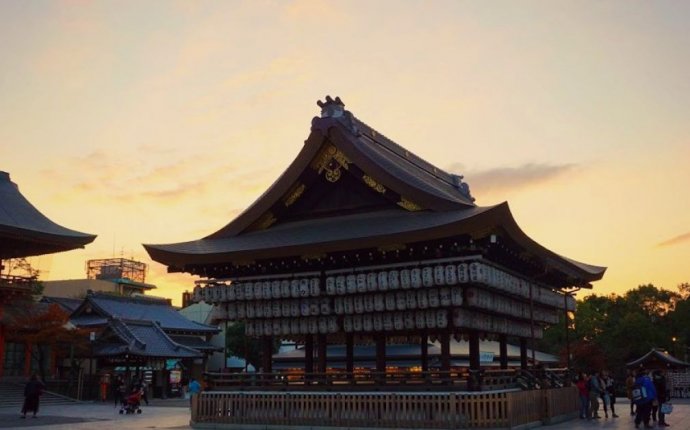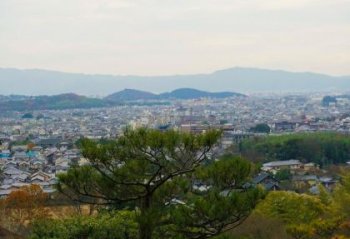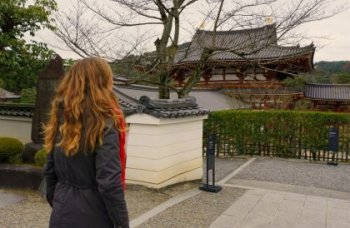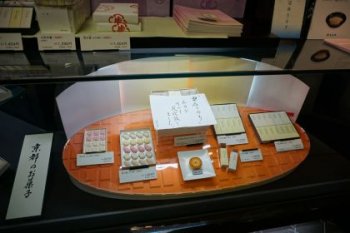
Japanese manners and behavior

12. Don't count the change
It's normal in Western countries to want to check if someone gave us the right change, but not in Japan. The Japanese people trust one another (no surprise they have the lowest levels of crime in the world) hence it is considered rude to count your change. It's a form of distrust and it is not appreciated.
13. Don't be late
Precision is key in Japan and one must not be late for an appointment. Be it dinner, seeing a doctor, going for an interview or meeting a friend, arriving on time is very important. You should respect this Japanese manner.
14. Don't stare
Respect other peoples' space and try to avoid physical contact. For example, don't pat a Japanese mate on his/her back. Don't stare at people and avoid long eye contact.
15. No phone calls, please
Although it is fine to be online, send texts and Instagram, it is impolite to talk on the phone whilst on a train or bus. If someone rings you, reject the call, send them a text saying you will call them back as soon as possible. This is one of my favourite things about Japan because I can actually rest on public transport and not listen to Mery's failed work day or listen to David's gossip.
 16. Be quiet
16. Be quiet
I know you are probably excited about everything you see around you, but try to talk softly and quietly. When we were on our way to Kyoto on the Shinkansen, there was a group of foreign tourists talking very loudly. You could see how uncomfortable and stressed the locals became because of this situation. Please make an effort and be as quiet as you can in Japan.
17. Respect, Respect, Respect
Don't ever get annoyed that someone doesn't speak English. Remember, you are in Japan, you should speak Japanese and not expect others to speak your language. Make an effort, gesticulate (nicely), use google translate, point at things and most importantly, be kind and patient. Don't make people feel bad in their own country.
18. No shouting
If you need to grab someone's attention, either wave at them or walk to them. You shouldn't shout their name on the street. Silence, quiet and respect in Japan are crucial.
19. Always stick to your side
When you walk on the street always stick to your side. Allow others to pass. I know you are on holiday, wanting to marvel at everything, but others must rush to get to work and cannot be late... remember, the Japanese are never late. Don't be the cause for it. Most pavements, escalators, subway platforms will have indicative signs showing which side to stick to. Respect this. Please queue probably for the Shinkansen or subway.
 20. Shoes off
20. Shoes off
Don't wear any shoes, nor slippers when walking on a tatami. There are also restaurants and museums which will ask you to remove your shoes before entering their establishment. Wear nice and clean socks during your travels to Japan and make sure you adhere to this etiquette.
21. Toilet slippers
Most hotels provide you with toilet slippers. Yes, this is a real thing in Japan. However, you should not wear the toilet slippers outside of the bathroom. The outside world and the toilet are considered dirty in Japan. Learn to respect this.
22. Visiting a Japanese person
It is customary that when you are visiting a Japanese person you bring some nicely wrapped drink or food to the host.
23. Gift away
 People of Japan consider gift giving very important. Gifts usually require an equal or even higher priced item in return. Make sure you don't spend a fortune on a gift just to impress someone as they will have to pay just as much or more to offer you a gift back.
People of Japan consider gift giving very important. Gifts usually require an equal or even higher priced item in return. Make sure you don't spend a fortune on a gift just to impress someone as they will have to pay just as much or more to offer you a gift back.
24. Have a tattoo?
If you are planning on experiencing an onsen, you must inform the staff of any tattoos you have. Don't be offended if you are refused entry as tattoos in Japan are usually associated with the yakuza or the mafia. Yes, this rule applies even to the smallest, delicate tattoos. Buy a tattoo cover sheet prior to your stay. Alternatively, you can opt in for a private onsen session, just enquire at the ryokan about this.
25. Onsen time
When in an onsen, you should swim nude. It is customary to keep your towel on your head and not allow your hair to touch the water. Most onsens are separated by gender. People sometimes go to public baths to socialise, it's a bit like an English pub without the clothes and the beer. You can read more about how to experience an onsen.
26. How to bath
This one is very strange and very hard for me to wrap my head around. In Japan, you must clean your body before you enter a bath tub. You then soak and relax. You exit the bath tub, soap up and rinse. You must make sure no soap touches the water in the bath as it must be kept absolutely crystal clear. After washing, you return to the bath tub and soak once more. At the end, you shouldn't drain the water, but allow the rest of your family members to do exactly the same. Although I appreciate the water is kept clean at all times, I think I am a little reluctant to take a bath and recycle the water in such manner. I think I will stick to the good old traditional showers.
27. Bow or Nod
Japanese people greet each other by bowing. You will see that some bow a little, others offer a deep bend to the waist. Long and deep bows indicate respect, whilst a shorter bow is informal. Don't bring your hands to the chest when you bow, as this is not a yoga exercise. You are not expected to know the rules of bowing in Japan, however, you will be greeted by a bow when entering a restaurant or shop. It is nice to offer a small nod back to reciprocate the greeting.











